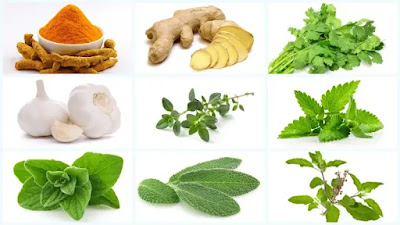Stomach pain, also called stomach pain, is a common problem caused by several things, like indigestion, gastritis, gas, constipation, or a medical condition that isn't visible on the surface. In this part, we'll discuss different ways of Stomach Pain Treatment.
A. Identifying the Underlying Cause
Medical Evaluation: When experiencing persistent or severe stomach pain, it is crucial to seek medical attention. A healthcare professional can assess the symptoms, perform physical examinations, and order diagnostic tests to determine the underlying cause.
Differential Diagnosis: Different conditions can cause stomach pain, including appendicitis, ulcers, gallstones, or urinary tract infections. The identification of the specific cause helps guide the appropriate treatment.
B. Conventional Medical Treatments
Medications:
a.Antacids
Antacids are over-the-counter medicines that help balance stomach acid and relieve pain caused by indigestion or heartburn.
b. Proton Pump Inhibitors (PPIs):
PPIs stop the stomach from making acid. They are often given to people with gastric reflux disease (GERD) or peptic ulcers.
c. Antispasmodics:
These medicines help stomach cramps and spasms by relaxing the muscles in the digestive system.
d. Antibiotics:
Antibiotics may be given if a bacterial illness like Helicobacter pylori causes stomach pain.
Lifestyle Changes:
a. Changes to your diet:
Staying away from hot, fatty, or acidic foods can help in Stomach Pain Treatment. Fiber-rich foods can also help digestion and keep you from getting constipated.
b. Managing stress:
Stress can make stomach pain worse. Meditation or yoga are two ways to relax that might help.
c. Regular exercise:
Being active can help your body handle food well and make you less likely to have stomach pain.
d. Surgical Interventions:
Sometimes, like with gallstones or appendicitis, you may need surgery to treat the root problem.
Desi Medicine for Stomach Pain
Desi medicine is a term for traditional treatments from South Asian countries that often use natural products. Even though these remedies have been passed down for generations and are thought to help, it is essential to note that they may have yet to go through much scientific study or be approved by the government. Some forms of Desi medicine for stomach pain are:
Ajwain (Carom Seeds):
Ajwain is often used in traditional Indian medicine to help ease gas and bloating, often symptoms of stomach pain.
Saunf (Fennel Seeds):
It is thought that fennel seeds help digestion, lower inflammation, and relieve stomach pain. They can be made into tea or just eaten.
Ginger:
Ginger has been used for a long time because it helps reduce inflammation. It can help ease stomach pain when taken differently, like ginger tea or adding it to food.
Pudina (Mint):
Mint leaves make the digestive system feel better. If you have gut pain, mint tea or chewing on fresh mint leaves may help.
Hing (Asafoetida):
Hing is often used in Indian medicine to treat stomach cramps and spasms because it has antispasmodic qualities.
Herbal Medicine for Stomach Pain
Herbal medicine uses medicines made from plants to treat a wide range of health problems. Herbal medicines have been used for hundreds of years, but you should talk to a doctor before using them because they can combine with other drugs and may not be suitable for everyone. Some herbs that can help stomach pain are:
Chamomile:
Chamomile tea is known for its calming and pain-relieving properties, which can help soothe the stomach and ease pain.
Peppermint:
Peppermint oil or tea can help relax the digestive system muscles, easing digestive system muscles, easing stomach cramps and pain.
Licorice:
The root of licorice is thought to have anti-inflammatory benefits and protect the stomach lining, which could make stomach pain disappear.
Slippery Elm:
Slippery Elm has a gel-like substance called mucilage that can protect the stomach and help relieve stomach pain and inflammation.
Turmeric:
Turmeric has anti-inflammatory qualities and may help relieve stomach pain when eaten as part of a balanced diet or as a tea.
Stomach Pain Tablet
Stomach Pain Tablet are usually over-the-counter or prescription drugs that are made to relieve stomach pain and other connected symptoms. These tablets are often different kinds, like chewable pills or capsules. Common examples include:
Simethicone:
This medicine helps stop gas from building up in the stomach and bowels, which can be painful and uncomfortable.
Ibuprofen:
Ibuprofen is mainly used to relieve pain but can also help with stomach pain from inflammation or menstrual cramps.
Acetaminophen
Acetaminophen is a pain killer that can help with mild to moderate stomach pain not caused by inflammation.
Antispasmodics:
Some tablets with antispasmodics in them can help relax the digestive system muscles, easing stomach cramps and the pain they cause.
(PPIs) Proton Pump Inhibitors:
PPIs come in tablet form and are often given to people with GERD, stomach ulcers, or infections caused by Helicobacter pylori.
Conclusion:
In conclusion, treating stomach pain means finding out what's causing it, using traditional medical treatments, looking into Indian and Herbal Medicine for Stomach, or thinking about taking stomach pain pills. Talking to a healthcare professional is essential to get an exact diagnosis and treatment for each person.


Comments
Post a Comment